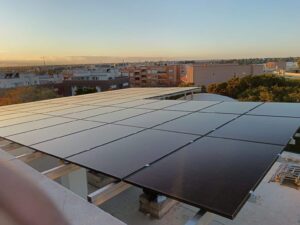Samsung Electronics, a global leader in advanced memory technology, has announced the development of the first PCIe 4.0 automotive SSD based on eighth generation vertical NAND technology (V-NAND). This new automotive SSD, known as AM9C1, promises industry-leading speeds and greater reliability, making it an optimal solution for artificial intelligence capabilities in next-generation vehicles.
The new 256GB automotive SSD offers approximately 50% higher energy efficiency compared to its predecessor, the AM991. Sequential read and write speeds reach up to 4,400 megabytes per second (MB/s) and 400MB/s, respectively.
“We are collaborating with global autonomous vehicle manufacturers and providing high-performance, high-capacity automotive products,” said Hyunduk Cho, Vice President and Head of the Automotive Group at Samsung Electronics. “Samsung will continue to lead the physical AI memory market, spanning applications from autonomous driving to robotic technologies.”
Built with a 5-nanometer Samsung controller and providing a Single-Level Cell (SLC) Namespace feature, the AM9C1 automotive SSD demonstrates high performance for easier access to large files. By switching from the original Triple-Level Cell (TLC) state to SLC mode, users can enjoy read and write speeds of up to 4,700MB/s and 1,400MB/s, respectively, while also benefiting from the increased reliability of SLC SSDs.
The 256GB model of the AM9C1 is being tested by key partners and is expected to enter mass production by the end of this year. Samsung plans to offer multiple storage capacities for the AM9C1, ranging from 128GB to 2 terabytes (TB), to meet the growing demand for high-capacity automotive SSDs. The 2TB model, expected to have the industry’s highest capacity in this product category, will begin mass production early next year.
Through rigorous board-level testing, Samsung’s new automotive SSD meets the AEC-Q100 Grade 2 semiconductor quality standard for cars, ensuring stable performance over a wide temperature range of -40°C to 105°C.
To meet the high standards of the automotive industry in terms of durability and stability, Samsung also carries out various quality assurance processes. The company received ASPICE CL3 authentication for its UFS 3.1 product in March of this year.
In an effort to obtain CSMS certification based on ISO/SAE 21434, Samsung will continue to actively improve the reliability and technological stability of its automotive solutions.
“The ASPICE and ISO/SAE 21434 certifications are milestones that affirm the reliability and stability of our technology,” said Hwaseok Oh, Executive Vice President of Samsung Electronics. “Beyond these achievements, Samsung will continue to elevate the stability and quality of its products by consistently providing the best solution to its key partners.”
This innovative Samsung solution highlights the advanced technology and the company’s commitment to driving the evolution of the automotive industry, providing the performance and reliability needed for AI applications and autonomous driving.
Referrer: MiMub in Spanish












